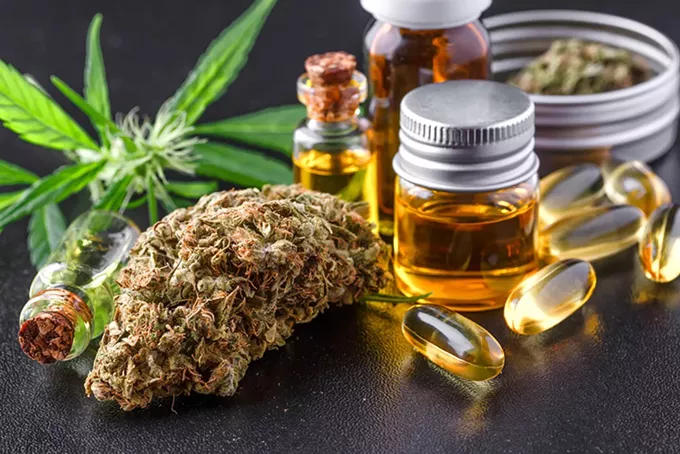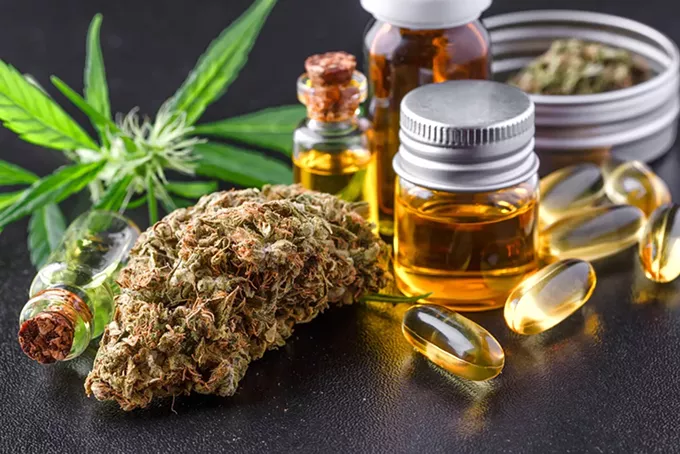Cannabis-based treatments mitigate symptoms and promote quality-of-life improvements in patients suffering from anxiety-related disorders, according to the findings of a systematic review published in the journal Psychiatry Research.
A team of Australian researchers reviewed 57 studies assessing the use of plant-derived and synthetic cannabis formulations in patients with either generalized anxiety disorder (GAD), social anxiety disorder (SAD) or post-traumatic stress disorder (PTSD).
Despite substantial heterogeneity amongst studies, most papers nonetheless reported cannabis preparations to be effective at reducing anxiety symptoms.
“Among studies with a low relative risk of bias studies included in this review, 69% reported improvements in anxiety symptoms and quality of life following medicinal cannabis use,” researchers reported.
“Among high-quality trials that investigated GAD, there were consistent reductions in anxiety scores reported. Similarly, qualitative findings highlighted improvements in both symptom relief and sleep quality, especially for participants with PTSD.”
The study’s authors concluded: “Across a range of anxiety-related disorders, most high-quality studies found that medicinal cannabis reduced anxiety symptoms in individuals with GAD, PTSD and SAD. … Future studies should investigate how medicinal cannabis can be integrated with standard treatments, such as selective serotonin reuptake inhibitors (SSRIs), traditional anxiolytics and cognitive therapy for anxiety-related disorders.”
Survey data reports that some 70% of consumers who use cannabis for self-medication purposes do so to address feelings of anxiety.
Full text of the study, “Medicinal cannabis in the management of anxiety disorders: A systematic review,” appears inPsychiatry Research. Additional information on cannabis and post-traumatic stress is available from NORML’s publication, Clinical Applications for Cannabis & Cannabinoids.
Analysis: Legal markets
send $25B to states
Taxes derived from the licensed sale of state-regulated adult-use cannabis products totaled more than $4.4 billion in 2024 — the highest total recorded in a single year, according to an analysis provided by the Marijuana Policy Project.
Cannabis sales produced the highest tax revenue in California, exceeding $1 billion, followed by Illinois at $578 million, Michigan at $524 million and Washington at $516 million.
Since 2014, when Colorado and Washington became the first two states to regulate the adult-use cannabis market, states have generated a combined total of more than $24.7 billion in tax revenue from the sale of marijuana products.
“States with legal, adult-use cannabis sales have allocated tax revenues to a variety of needs, including their General Funds and specific services and programs,” the report’s authors acknowledge.
“Cannabis taxes have provided funding for Medicaid, education, school construction, housing, roads, early literacy, bullying prevention, behavioral health, alcohol and drug treatment, veterans’ services, conservation, job training, conviction expungement expenses, and reinvestment in communities that have been disproportionately affected by the war on cannabis, among many others.”
Twenty-four states have enacted legislation legalizing the adult use of cannabis. However, three states — Delaware, Minnesota and Virginia — have yet to license cannabis retailers.
Separate economic data recently provided by Vangst Staffing and Whitney Economics reports that some 425,000 workers are currently employed full-time by state-licensed cannabis businesses.
Full text of the report, “Cannabis Tax Revenue in States that Regulate Cannabis for Adults,” is available from MPP.
Nevada governor OKs
foster parents law
Republican Nevada Gov. Joe Lombardo has signed legislation (AB 107) into law allowing those with prior low-level marijuana convictions to be eligible to become foster parents.
In March, members of the Nevada Assembly voted 42-0 in favor of the measure. Senate members approved the bill on May 23 by a vote of 19-2.
Nevada law previously disqualified anyone with a federal or state drug-related conviction from fostering children. The new law provides an exception for those with marijuana possession convictions, if the conviction did not occur within the preceding five years.
“Nevada’s longstanding foster care ban no longer aligned with public attitudes toward marijuana, nor did it align with the marijuana laws of Nevada or the surrounding states that regulate its use,” NORML’s deputy director Paul Armentano said. “As cannabis laws change, it is imperative that lawmakers continue to target and amend these ‘holdover’ policies so that consumers no longer face discrimination for behaviors that are state-legal.”
Nevada voters legalized adult-use marijuana possession and sales in 2016.
(Except for the headline, this story has not been edited by PostX News and is published from a syndicated feed.)


